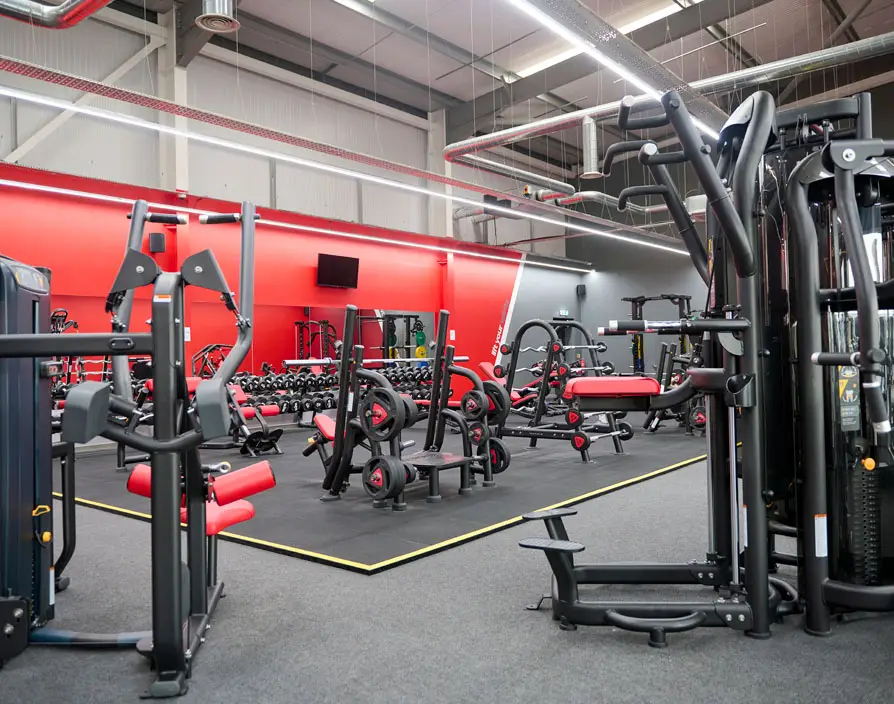However, with the evolving business landscape, there is an opportunity to diversify portfolios by embracing the fitness sector. Kristen Horler, Head of Sales at Snap Fitness, provides illuminating insights into why fitness franchises are swiftly emerging as the coveted stars of the franchise investment industry, rivalling the traditional QSR and real estate favourites.
So, what is the allure of QSR and real estate? QSR’s appeal lies in its convenience and the familiarity of established brands for customers, while real estate thrives on the constant demand for buying, selling and renting properties. Despite their endurance in popularity, fitness franchises are making a compelling case for inclusion in investment portfolios, often becoming the first choice for astute investors.
Tackling business challenges with franchising
While QSR and real estate franchises hold undeniable allure, recent global and British economic challenges have added a layer of complexity, giving investors food for thought. These challenges include work-life balance concerns and the demanding commitment of time and effort. Staff recruitment and high turnover rates further compound these challenges, leading to ongoing expenses.
More recently, supply chain disruptions have also wreaked havoc, forcing many restaurants to shut their doors. Figures from accountancy firm reveal in the first three months of 2023, restaurants closed at their highest rate for a decade at five a day*. Fortunately, for smart investors, franchisors offer invaluable support, providing expert guidance, proven HR programmes and robust supplier relationships to mitigate these issues.
The real estate industry presents its own set of obstacles too, particularly in highly sought-after areas, the competition can be intense. There is a good chance that competitors have already established a presence there, putting new business owners at a disadvantage when it comes to brand recognition and building on word-of-mouth referrals. Franchise brands excel in addressing this challenge by offering quick-start marketing campaigns and leveraging national-level brand recognition to support new franchisees and foster customer referrals.
Beyond estate and letting agencies, other real estate niches such as property renovation and management face additional complexities tied to market fluctuations and revolving mortgage and lending rates. In today’s environment, profitability is increasingly tied to longer-term outcomes, in contrast to the more immediate results of previous years. Adaptability and strategic planning are essential for investors in this sector, and franchisors play a pivotal role in ensuring the success of their franchise network.
Why fitness franchises are gaining ground
Fitness franchises are gaining ground among prospective investors, driven by the growing emphasis on health and well-being. Gym membership numbers are on the rise, presenting a lucrative market for franchisees. Research shows that the industry is rapidly recovering from COVID as member numbers in the UK are now around 10 million1. Leveraging established business models and a steady stream of income from monthly membership fees, investors can achieve returns on their investments faster and at rates comparable to QSR and real estate franchises – health is the new wealth. In fact, at Snap Fitness, we’ve seen a remarkable 14% in membership since 2022, surpassing the industry average of 3.9%2.
While fitness franchises require significantly fewer staff than QSR establishments, recruitment remains a challenge, whether it’s choosing a fitness franchise that offers a staffed or un-staffed business model. Yet, with a commitment to quality staff training, fitness franchises systems can attract and retain loyal team members, allowing franchisees to delegate management tasks and achieve a healthier work-life balance.
Property acquisition costs are a shared challenge among QSR, real estate and fitness businesses. However, franchise models like ours, substantially mitigate the risks for our franchisees, as we have in-house specialists who handle property searches and selections.
The final cherry on top for fitness franchises and the reason they are hot on the heels of the franchise forerunners? The fitness franchise industry is rewarding! These franchises offer the opportunity to positively affect people’s lives, promoting healthier lifestyles and personal well-being. Being an environment where others are actively pursuing fitness goals can also inspire franchisees to adopt healthier habits themselves – a true win-win situation.
As Snap Fitness gears up to celebrate the launch of its 100th gym in the UK and Ireland in early 2024, the rising popularity of fitness franchises stands as testament to their bright future.
1 Statista, Gym Membership Numbers UK, May 2022
2 State of the UK Fitness Industry Report, Leisure DB, 2023


































